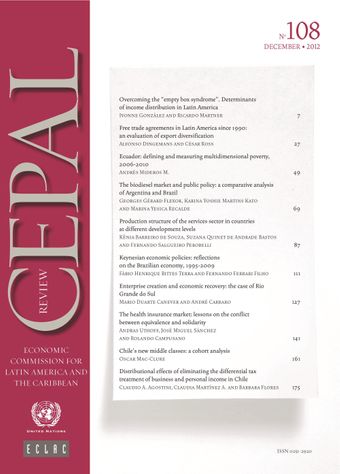-
The health insurance market: Lessons on the conflict between equivalence and solidarity
- Source: CEPAL Review, Volume 2012, Issue 108, Dec 2012, p. 141 - 159
- Spanish
-
- 27 Dec 2012
Abstract
Health-care systems are highly diverse, sometimes even sharing few basic aspects of design. In developing countries, demographic profiles, poverty, the labour market and public finances are such that a comprehensive approach to solidarity —combining contributory and non-contributory mechanisms— is essential. In 1981, Chile redesigned the contributory component of its system by means of private health-insurance companies. The rationale of private, individual insurance runs counter to the ethical imperatives of contracts based on social rights. In Europe, this dilemma has been tackled using risk-levelling mechanisms that resolve the conflict between accessibility, efficiency and selection. In Chile, competitive health insurance companies (Isapres) coexist with a solidarity-based State alternative, the National Health Fund (FONASA). The Isapres engage in aggressive risk selection. The challenge for health policy is to integrate the two systems to balance the principles of equivalence and solidarity.





